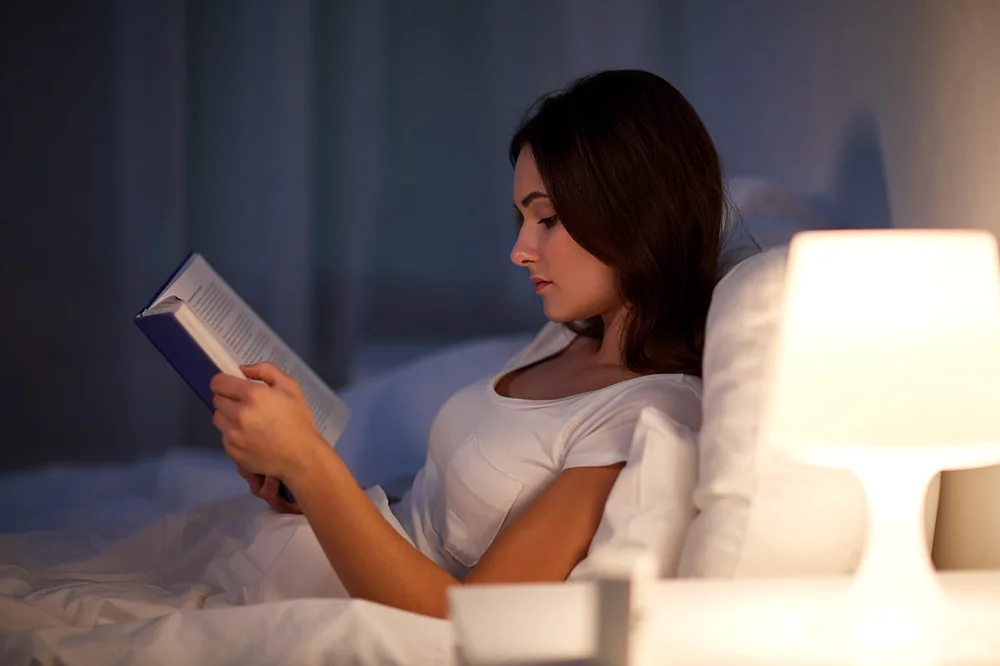What Are Sleep Chronotypes and Which One Are You?
Medically Reviewed by Dr. Nicole Avena
Are you a night owl who thrives in the late hours of the evening, or an early bird who has boundless energy in the wee hours of the morning? Or are you somewhere in between?
Understanding your sleep identity can have a significant impact on your overall health and well-being.
Below, we’ll explore the different chronotypes and help you discover where you land on the sleep spectrum.
What Are Sleep Chronotypes?
Sleep chronotypes are a relatively new concept in the field of sleep research. They’re a type of classification system based on the natural patterns of your sleep-wake cycle.
The concept of sleep chronotypes was first introduced by Dr. Michael Breus in his book The Power of When. These types are used to help define your biological clock (when you feel most alert and productive vs when you’re more likely to feel fatigued or sluggish) and your preferred time for sleeping/waking, eating meals, and other daily activities.
Chronotypes represent different kinds of sleepers; each has their own unique characteristics and behaviors. Understanding your sleep chronotype can help you optimize your daily routines for maximum productivity and overall well-being.
Lions and Dolphins and Bears…Oh, My!
No, these aren’t NFL team mascots, they’re sleep types.
Here are the 4 main chronotypes plus a bonus type…
- The Lion (aka “Early Bird”)
Often described as a morning person or early riser, Lions are those who prefer to rise early in the morning and tend to feel most energized during the first half of the day. They typically don’t have trouble waking up earlier than others and may even be up before the sun rises. Also, they may find it difficult to sleep past their usual wake-up time, regardless of how late they went to bed the night before.
Lions make up about 15% of the U.S. population.
- The Wolf (aka “Night Owl”)
On the opposite end of the spectrum, night owls prefer to stay up late into the night. They thrive in nighttime hours, feeling most alert, energetic, and productive late into the evening or early morning hours. They may have difficulty falling asleep at an early hour, typically struggle with early mornings, and often require more time in bed to feel well-rested.
Wolves make up around 20% of the population.
- The Bear
This type falls somewhere between early birds and night owls on the spectrum, with a slight preference towards either end, but still adaptable enough to function well in both daytime and nighttime hours.
Bears follow a traditional sleeping pattern of going to bed at a reasonable time in the evening and waking up early in the morning. They prefer a consistent schedule with regular mealtimes and bedtime rituals.
These individuals tend to be able to shift their sleep schedules without much disruption.
Bears make up about 50% of the population.
- The Dolphin
Just like real dolphins, which stay alert even while sleeping, individuals comprising this sleep type may have difficulty falling asleep and tend to be light sleepers. They usually experience fragmented and disrupted sleep, waking up multiple times throughout the night.
Dolphins also are known for being highly sensitive to external stimuli, such as noise or light disturbances.
Dolphins make up only about 10–15% percent of the population.
It’s important to note that while these four categories are the most commonly recognized chronotypes, not everyone fits neatly into one specific category. Some individuals may exhibit traits of more than one chronotype or may have a unique pattern all their own.
This certainly applies to the “unofficial” fifth sleep chronotype…
- The Hummingbird
Hummingbirds defy categorization as they don’t fit into any of the traditional sleep chronotypes. They have flexible sleeping patterns and can adapt to different schedules with ease.
Hummingbirds often thrive in creative or entrepreneurial roles that allow them to make their own schedule.
Chronotype Quiz

A chronotype quiz is a series of questions designed to assess your natural sleep process. It considers various factors, such as:
- when you feel most alert and productive
- when you prefer to go to bed
- how easily you fall asleep at different times during the day or night
By answering these (and other) questions, you can gain a deeper understanding of your personal circadian rhythm – the internal clock that regulates your sleep-wake cycle.
There are several chronotype quizzes available online, each with their own unique approach to determining an individual’s sleep identity. One sleep test is the Morningness-Eveningness Questionnaire (MEQ), which measures whether a person is more inclined towards being a morning or evening person.
Another popular sleep quiz is the Munich ChronoType Questionnaire (MCTQ), which uses self-reported data on sleeping and waking habits over weekdays and weekends to calculate an individual’s circadian typology. It also takes into account lifestyle factors, such as the amount of sunlight exposure (which naturally produces vitamin D3 in the body) a person gets each day.
Some other sleep evaluations use images rather than text-based questions or involve physical tasks like recording body temperature upon waking up.
Regardless of which type of assessment you choose, taking a chronotype quiz can help provide valuable insights into your sleep tendencies. Based on this information, you can make informed decisions about your daily routine and create a customized sleep schedule that aligns with your chronotype.
Note: these quizzes aren’t meant to be a definitive diagnosis of your chronotype. They can function as a guideline and starting point for understanding your sleep identity, but shouldn’t be adopted without first seeking professional, medical advice.
Know Your Sleep Chronotype
Knowing your chronotype can help you understand why you struggle with certain tasks or habits and can help you make better choices about when to schedule tasks and activities throughout your day. It also allows you to work with, rather than against, your natural sleep rhythms, leading to improved overall productivity and well-being.
It’s recommended that you consult with a healthcare professional or sleep specialist before making any adjustments to your sleep-wake schedule.
At BrainMD, we’re dedicated to providing the highest purity nutrients to improve your physical health and overall well-being. For more information about our full list of brain healthy supplements, please visit us at BrainMD.
These statements have not been evaluated by the FDA. This content is for informational purposes only. It is not meant to substitute for medical or healthcare advice from a physician, nor is it intended to diagnose, treat, cure, or prevent any disease. Consult your healthcare provider before beginning a new health regimen.



